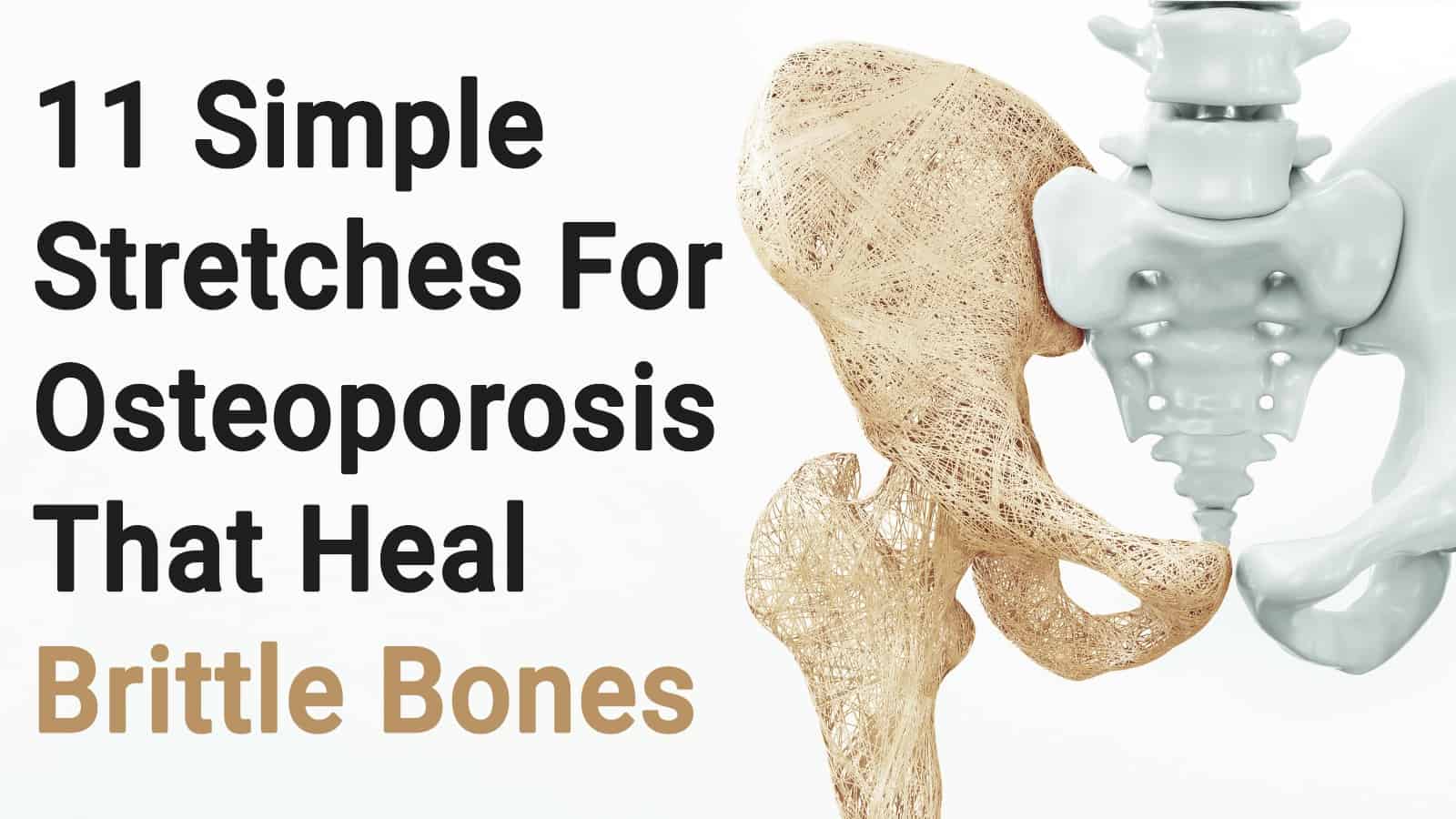Over 75 million people in the world suffer from osteoporosis, or brittle bones. It’s a very common condition among women over 40 and it’s difficult to diagnose unless you break a bone due to a minor injury. It can occur in only some areas of the body, or over bigger parts of the body. It can also sometimes cause chronic pain if fractures of the spine occur.
Fractures caused by osteoporosis can significantly impact your life and should be a cause of concern if you are at risk of osteoporosis. Sometimes, fractures can lead to the need for long-term care, or even increase the risk of death. Furthermore, a lack of calcium and vitamin D are also serious risk factors when it comes to osteoporosis.
There may be a solution though. Researchers have discovered that some yoga poses, when performed daily, can positively increase bone density rel=”nofollow” and therefore reduce the risk of osteoporosis. Moreover, yoga is fantastic for other mobility-affecting conditions, such as joint hypermobility and Ehlers-Danlos syndrome. Of course, the best option is to go to a yoga teacher and ask them about the best poses for your condition. However, with some training videos on YouTube and illustrated guides, you can also learn these poses at home! It’s a cost-effective and fun way to reduce your risk of osteoporosis. Here are some yoga poses recommended by science for increased bone strength.
Here Are 11 Simple Stretches for Osteoporosis That Heal Brittle Bones
1. The downward dog
This is one of the most popular yoga poses out there. To perform the downward dog, plant your hands on the ground and lift up your pelvis, strengthening your back and keeping it straight so that your body forms the shape of a V. This pose is great for adding some strength to your spine and preventing fractures of the back.
2. The salabhasana
Also known as the locust, this pose is performed by lifting your head off the ground, with your arms stretched back, and lifting your legs from the pelvis at the same time while lying on your belly. This is a wonderful pose to increase your core strength and the develop the muscles in your back.
3. The straight-leg twist
Another one for the back, the straight-leg twist is a popular solution for anyone struggling with lower back or hip pain. Lie down on your back, with your palms against the floor. Slowly raise your legs, making sure to keep your knees as straight as possible, and then rotate your torso, bringing your feet towards the floor. Alternate sides of this position for the best results.
4. The bridge
Begin on your back, with your legs bent at the knees and your palms and feet against the floor. Slowly lift your pelvis off the ground until your whole torso is in line with your knees. Stay like that for a few seconds and then relax, trying it again. This is wonderful for strengthening your arms and shoulders, as well as increasing your general core strength.
5. Vriksasana
This is more commonly known as the tree pose and is again one of the most common yoga poses. It’s wonderful for the weaker tendons and bones in your body, like your ankles and wrists. Start standing up, with your feet planted on the ground. Raise your right leg and bend at the knee, placing your foot against your other leg. Raise your hands above your head and join them at your palms.
6. The revolved triangle
This pose is very useful for sciatica sufferers, as they are at a greater risk of osteoporosis. It’s also great for relieving lower back pain. Stand up, with your feet apart and your arms parallel to the floor. Rotate your torso and touch one palm to the floor next to your front leg, while your other arm extends upwards. Switch sides for maximum efficiency.
7. The extended triangle
This is very similar to the revolved triangle, only the arm on your front leg rests on your ankle rather than the floor and your hip is slightly extended forward. This pose is really useful for weak joints and tense muscles, known to relieve tension almost straightaway. As with the revolved triangle, make sure to switch sides.
8. The reclining hand-to-big-toe
Also called the Supta Pandagusthasana, this position has two variations, however, the one we’ll describe here is better for yoga beginners. Lie down on the floor, looking up, with your hands by your sides. Raise one of your legs, keeping the knee extended. With your hand, place a rubber band on the sole of the foot, pressing down as hard as you can. Make sure to switch legs as well. This position ensures correct pelvis alignment and relieves lower back pain.
9. The warrior pose
Start with your feet on the floor, arms by your side. Step forward with one foot and lean down, extending your back foot until the knee is completely taut. Raise your hands at shoulder level parallel to the floor with the palms up. Then switch the leading leg. This exercise is great for painful hips and a misaligned pelvis as a result of osteoporosis.
10. The bent-knee twist
This is a slightly more advanced pose that people who are not very flexible might find difficult. Start sitting up, with your back straight, arms by your side. Bend your left leg at the knee and put your right leg over it, twisting your torso to the right. Hook your arms through the right leg and hold your hands together. Switch sides after a few seconds.
11. The deep relaxation pose
Lie down on your back, with palms up to the ceiling. Keep your feet spread apart, your hips relaxed, and your knees extended. Take a deep breath and close your eyes, feeling your tension slip away. Try not to fall asleep. This position relaxes all the pain in your body and your mind, too.
Final thoughts
“Today osteoporosis affects more than 75 million people in the United States, Europe, and Japan and causes more than 2.3 million fractures in the USA and Europe alone.” – Gro Harlem Brundtland
If you’re at risk for osteoporosis, remember positive thinking – you can definitely help yourself with these relaxing yoga poses, and do something fun in the meantime, too!
https://www.youtube.com/watch?v=cHeI3Y_CfMo


















